Climate & Environment
 Assistant professor Zia Mehrabi wants you to know how what you eat impacts the planet—and other humans. He lays out his plan in a new paper.
Assistant professor Zia Mehrabi wants you to know how what you eat impacts the planet—and other humans. He lays out his plan in a new paper.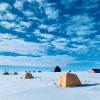 A new study from Chloe Brashear, Tyler Jones and others suggests abrupt warming events were preceded by periods of unusually stable temperatures during the last ice age. The researchers point toward shifting sea ice as a potential driver of the phenomenon.
A new study from Chloe Brashear, Tyler Jones and others suggests abrupt warming events were preceded by periods of unusually stable temperatures during the last ice age. The researchers point toward shifting sea ice as a potential driver of the phenomenon. A CU Boulder-led study measured water vapor in Greenland’s air, collecting data crucial for improving climate models and forecasting Arctic changes.
A CU Boulder-led study measured water vapor in Greenland’s air, collecting data crucial for improving climate models and forecasting Arctic changes. A new model suggests that timber production in Minnesota could decrease by half as windstorms intensify with climate change.
A new model suggests that timber production in Minnesota could decrease by half as windstorms intensify with climate change. March 2025 has been a gusty month for Colorado's Front Range. Meteorologists Andrew Winters and McKenzie Larson break down what makes the region's weather so mercurial.
March 2025 has been a gusty month for Colorado's Front Range. Meteorologists Andrew Winters and McKenzie Larson break down what makes the region's weather so mercurial.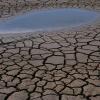 Most people have heard of heatwaves: extended periods of abnormally hot weather. But researchers from CIRES and the University of Idaho have coined a new term to describe extended periods of atmospheric thirst. Studying these ”thirstwaves“ can help farmers better manage their water resources and improve crop yields.
Most people have heard of heatwaves: extended periods of abnormally hot weather. But researchers from CIRES and the University of Idaho have coined a new term to describe extended periods of atmospheric thirst. Studying these ”thirstwaves“ can help farmers better manage their water resources and improve crop yields.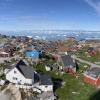 A summit underway at CU Boulder through March 28 is bringing an estimated 800 people from more than 40 countries to plan for the future of the Arctic.
A summit underway at CU Boulder through March 28 is bringing an estimated 800 people from more than 40 countries to plan for the future of the Arctic.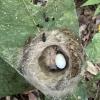 For the first time, scientists described a hummingbird chick potentially mimicking a poisonous caterpillar to avoid getting eaten.
For the first time, scientists described a hummingbird chick potentially mimicking a poisonous caterpillar to avoid getting eaten.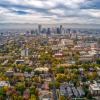 A new study found racial and socioeconomic disparities in where odor-emitting marijuana grow houses and other malodorous factories are located in Denver and in how communities report these issues.
A new study found racial and socioeconomic disparities in where odor-emitting marijuana grow houses and other malodorous factories are located in Denver and in how communities report these issues. Environmental designer Kevin Krizek shares how systemic barriers and status-quo planning have led many cities to revert to car-dominated designs five years after the pandemic.
Environmental designer Kevin Krizek shares how systemic barriers and status-quo planning have led many cities to revert to car-dominated designs five years after the pandemic.


